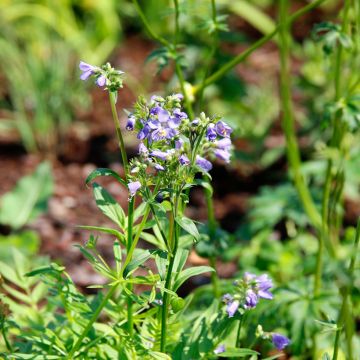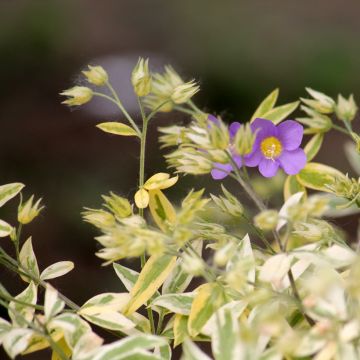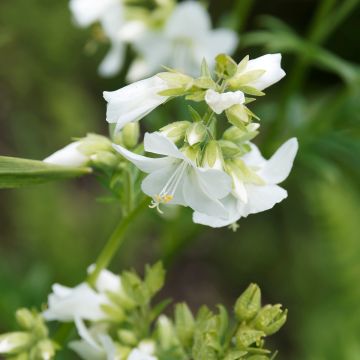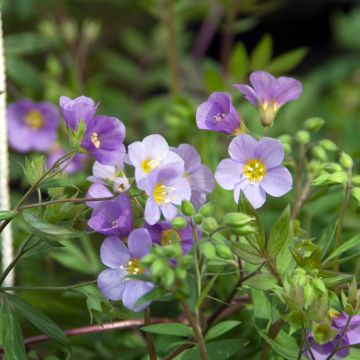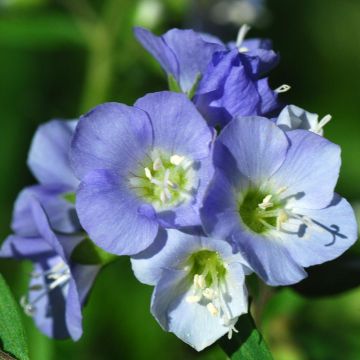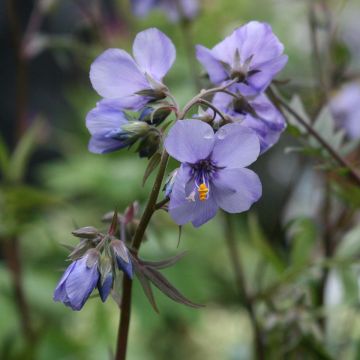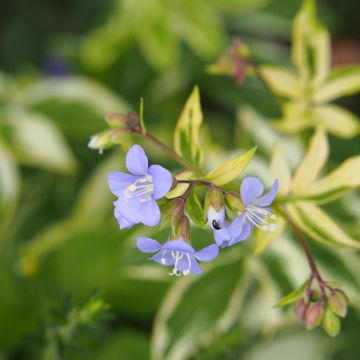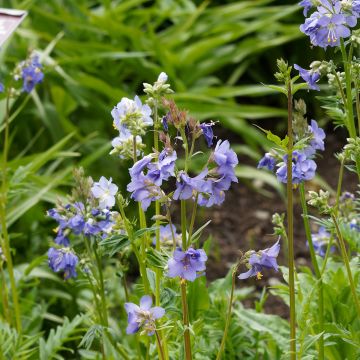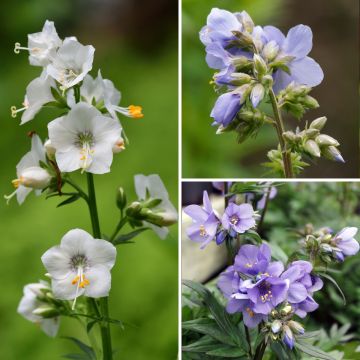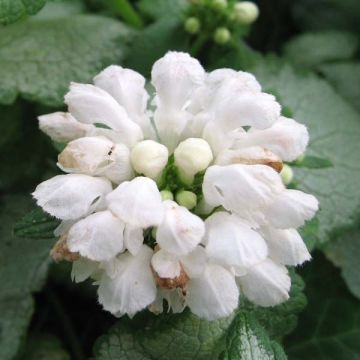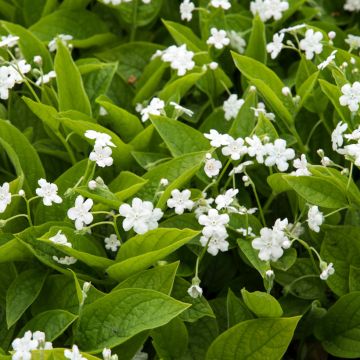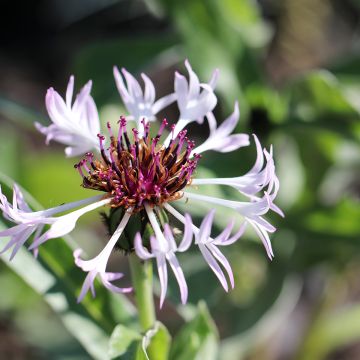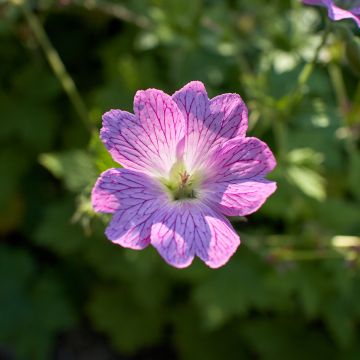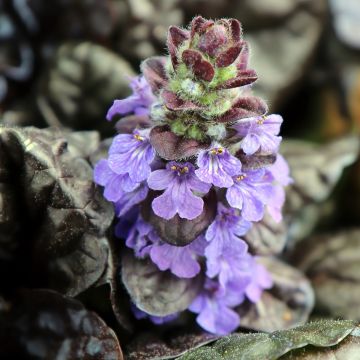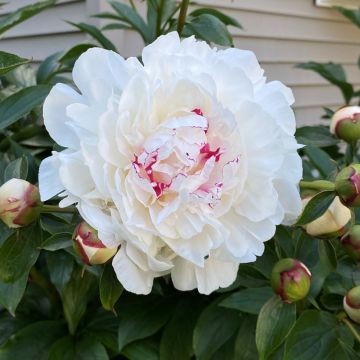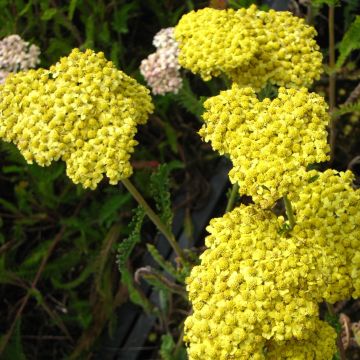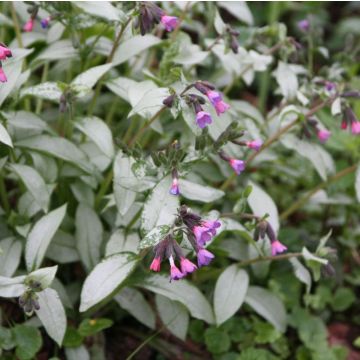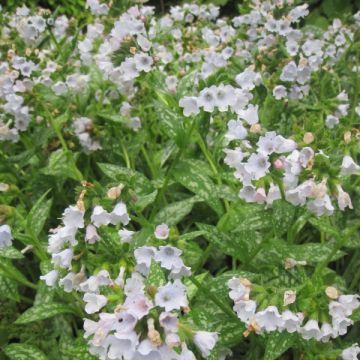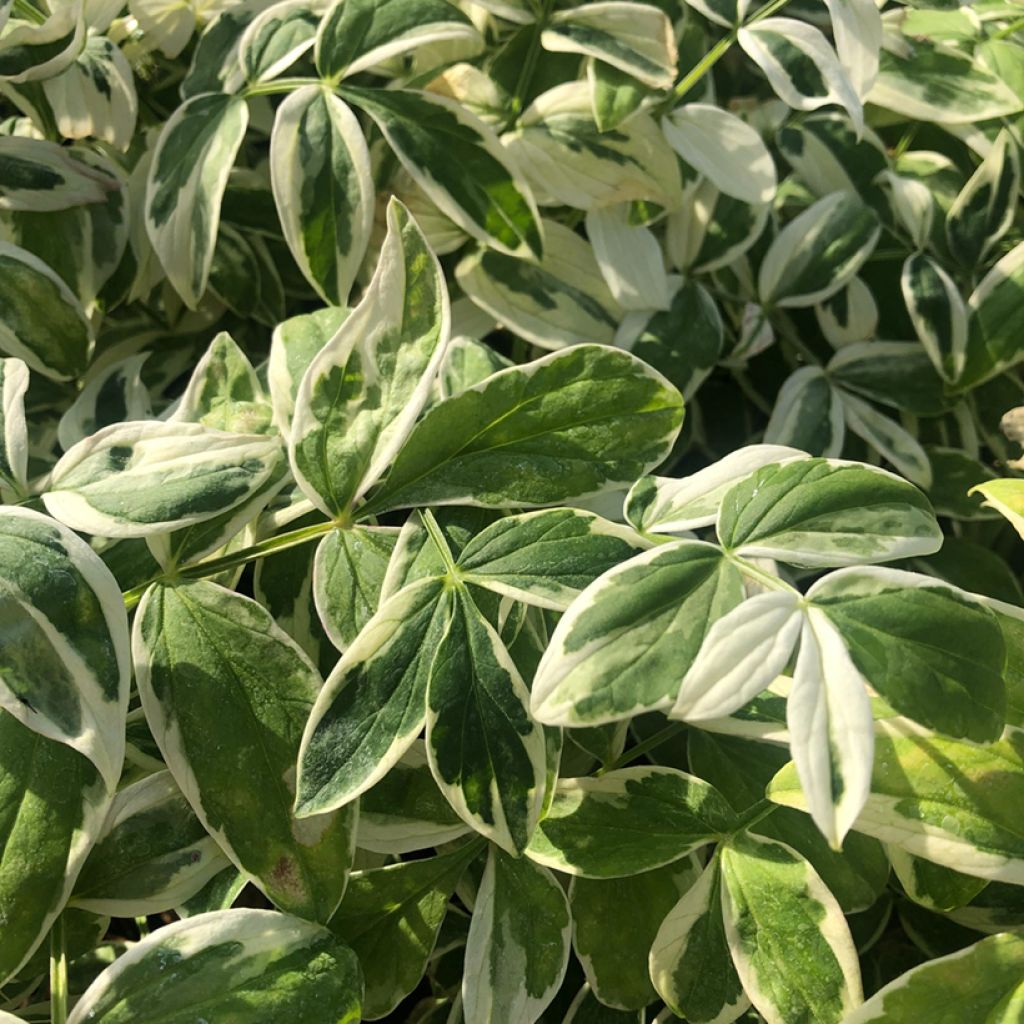

Polemonium reptans Touch of Class
Polemonium reptans Touch of Class
Polemonium reptans Touch of Class
Creeping Jacob's Ladder, Greek Valerian, Bluebells, American Abcess-Root, Sweet Root
This item cannot be shipped to the selected country
Delivery charge from €5.90
More information
Schedule delivery date,
and select date in basket
This plant carries a 12 months recovery warranty
More information
We guarantee the quality of our plants for a full growing cycle, and will replace at our expense any plant that fails to recover under normal climatic and planting conditions.
From €5.90 for pickup delivery and €6.90 for home delivery
Express home delivery from €8.90.
Does this plant fit my garden?
Set up your Plantfit profile →
Description
Polemonium reptans Touch of Class, also known as Creeping Jacob's Ladder, is a small perennial plant with a low-growing habit. Its foliage is remarkable, soft green-grey, finely marginated with white, and it regenerates throughout the entire growing season. In late spring, it produces loose clusters of small pink buds that open into mauve corollas. This plant is ideal for bordering a path in a woodland edge, a rock garden, a shady bed, in non-burning sun or partial shade.
The creeping Polemonium 'Touch of Class' belongs to the Polemoniaceae family. It is a cultivar derived from Polemonium reptans, native to the eastern United States, from Minnesota to New Hampshire, Georgia, Mississippi, and west of the Appalachians, where it is commonly found in rich and moist undergrowth, often along riverbanks. 'Touch of Class' is a recent American hybrid, more vigorous than Polemonium 'Stairway to Heaven', its parent. This perennial forms a prostrate clump about 40cm (16in) in all directions. Completely dormant in winter, the plant rapidly grows in spring and early summer, until flowering. Its deciduous foliage consists of finely divided pinnate leaves, flexible, resembling fern leaves, with 7 to 9 ovate and pointed leaflets, almost glabrous. They are distinguished by their soft green-grey colour, with each leaflet finely marginated with white. They continuously renew from spring to summer, before disappearing in winter. From May to July, erect flowering stems emerge from the foliage, bearing pink buds that open into small mauve tubular flowers with a white throat, slightly fragrant. This nectar-rich flowering is highly visited by bees and butterflies.
Plant it in a mixed border or as a border plant in combination with anemones, pasque flowers, or at the base of shrub or old roses. This variety prefers partially shaded exposures. To brighten up a woodland or shaded garden, this selection has no rival. Combine it with corydalis, bleeding hearts, Geranium nodosum, and epimediums. It is a good plant for decorating the edges of water features.
In the past, the dried roots of Polemonium reptans were used in herbal medicine. They were harvested in autumn and dried for later use.
Report an error about the product description
Polemonium reptans Touch of Class in pictures
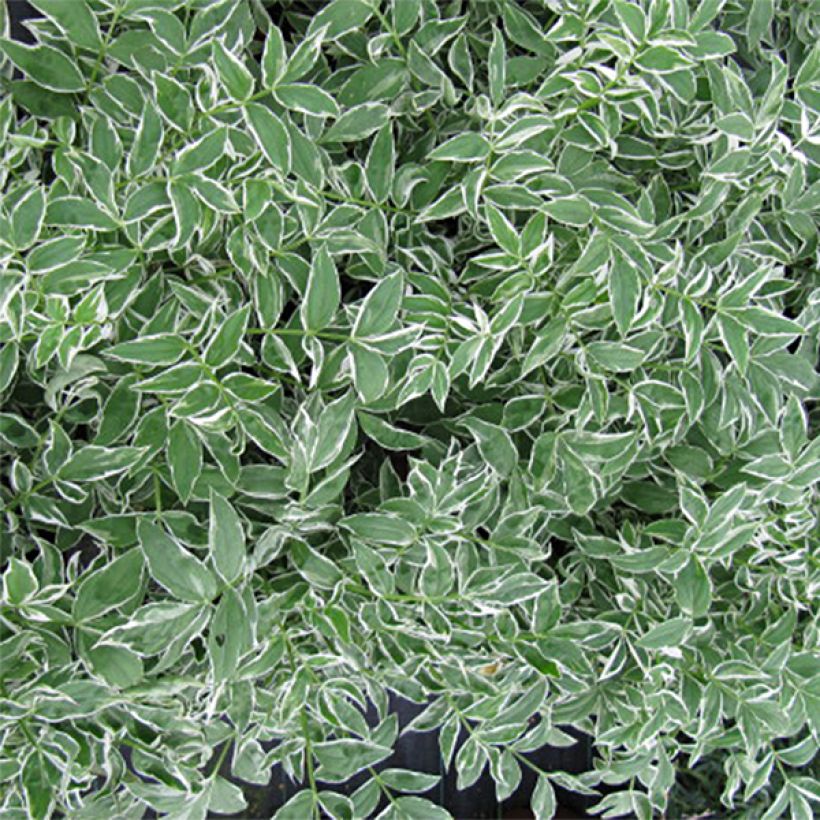

Flowering
Foliage
Plant habit
Botanical data
Polemonium
reptans
Touch of Class
Polemoniaceae
Creeping Jacob's Ladder, Greek Valerian, Bluebells, American Abcess-Root, Sweet Root
North America
Other Polemonium - Jacob's Ladder
Planting and care
Polemonium 'Touch of Class' is easy to grow. It is preferably planted in autumn or spring, in moist but well-drained, fairly rich soil, in a semi-shaded position. Mark the location as the foliage completely disappears during winter. To prevent excessive plant propagation, be sure to remove faded flowers to avoid spontaneous sowing and in order to achieve a second flowering and better foliage retention.
Planting period
Intended location
Care
-
, onOrder confirmed
Reply from on Promesse de fleurs
Spring flowering perennials
Haven't found what you were looking for?
Hardiness is the lowest winter temperature a plant can endure without suffering serious damage or even dying. However, hardiness is affected by location (a sheltered area, such as a patio), protection (winter cover) and soil type (hardiness is improved by well-drained soil).

Photo Sharing Terms & Conditions
In order to encourage gardeners to interact and share their experiences, Promesse de fleurs offers various media enabling content to be uploaded onto its Site - in particular via the ‘Photo sharing’ module.
The User agrees to refrain from:
- Posting any content that is illegal, prejudicial, insulting, racist, inciteful to hatred, revisionist, contrary to public decency, that infringes on privacy or on the privacy rights of third parties, in particular the publicity rights of persons and goods, intellectual property rights, or the right to privacy.
- Submitting content on behalf of a third party;
- Impersonate the identity of a third party and/or publish any personal information about a third party;
In general, the User undertakes to refrain from any unethical behaviour.
All Content (in particular text, comments, files, images, photos, videos, creative works, etc.), which may be subject to property or intellectual property rights, image or other private rights, shall remain the property of the User, subject to the limited rights granted by the terms of the licence granted by Promesse de fleurs as stated below. Users are at liberty to publish or not to publish such Content on the Site, notably via the ‘Photo Sharing’ facility, and accept that this Content shall be made public and freely accessible, notably on the Internet.
Users further acknowledge, undertake to have ,and guarantee that they hold all necessary rights and permissions to publish such material on the Site, in particular with regard to the legislation in force pertaining to any privacy, property, intellectual property, image, or contractual rights, or rights of any other nature. By publishing such Content on the Site, Users acknowledge accepting full liability as publishers of the Content within the meaning of the law, and grant Promesse de fleurs, free of charge, an inclusive, worldwide licence for the said Content for the entire duration of its publication, including all reproduction, representation, up/downloading, displaying, performing, transmission, and storage rights.
Users also grant permission for their name to be linked to the Content and accept that this link may not always be made available.
By engaging in posting material, Users consent to their Content becoming automatically accessible on the Internet, in particular on other sites and/or blogs and/or web pages of the Promesse de fleurs site, including in particular social pages and the Promesse de fleurs catalogue.
Users may secure the removal of entrusted content free of charge by issuing a simple request via our contact form.
The flowering period indicated on our website applies to countries and regions located in USDA zone 8 (France, the United Kingdom, Ireland, the Netherlands, etc.)
It will vary according to where you live:
- In zones 9 to 10 (Italy, Spain, Greece, etc.), flowering will occur about 2 to 4 weeks earlier.
- In zones 6 to 7 (Germany, Poland, Slovenia, and lower mountainous regions), flowering will be delayed by 2 to 3 weeks.
- In zone 5 (Central Europe, Scandinavia), blooming will be delayed by 3 to 5 weeks.
In temperate climates, pruning of spring-flowering shrubs (forsythia, spireas, etc.) should be done just after flowering.
Pruning of summer-flowering shrubs (Indian Lilac, Perovskia, etc.) can be done in winter or spring.
In cold regions as well as with frost-sensitive plants, avoid pruning too early when severe frosts may still occur.
The planting period indicated on our website applies to countries and regions located in USDA zone 8 (France, United Kingdom, Ireland, Netherlands).
It will vary according to where you live:
- In Mediterranean zones (Marseille, Madrid, Milan, etc.), autumn and winter are the best planting periods.
- In continental zones (Strasbourg, Munich, Vienna, etc.), delay planting by 2 to 3 weeks in spring and bring it forward by 2 to 4 weeks in autumn.
- In mountainous regions (the Alps, Pyrenees, Carpathians, etc.), it is best to plant in late spring (May-June) or late summer (August-September).
The harvesting period indicated on our website applies to countries and regions in USDA zone 8 (France, England, Ireland, the Netherlands).
In colder areas (Scandinavia, Poland, Austria...) fruit and vegetable harvests are likely to be delayed by 3-4 weeks.
In warmer areas (Italy, Spain, Greece, etc.), harvesting will probably take place earlier, depending on weather conditions.
The sowing periods indicated on our website apply to countries and regions within USDA Zone 8 (France, UK, Ireland, Netherlands).
In colder areas (Scandinavia, Poland, Austria...), delay any outdoor sowing by 3-4 weeks, or sow under glass.
In warmer climes (Italy, Spain, Greece, etc.), bring outdoor sowing forward by a few weeks.

































